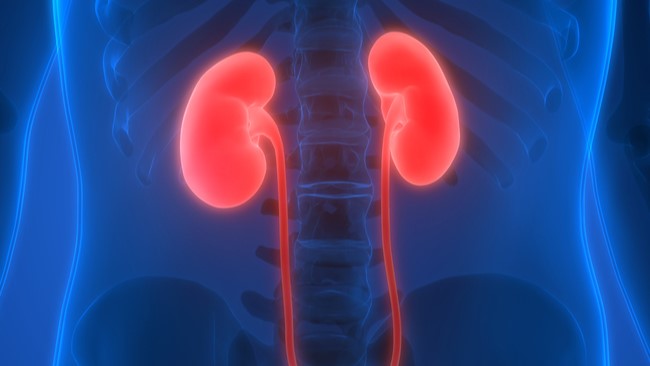Chronic Kidney Disease now affects more than 780 million people worldwide
Published: 7 November 2025
The number of people with chronic kidney disease (CKD) is rising, with the condition now the ninth leading cause of death globally, accounting for around 1.5 million deaths a year
The number of people with chronic kidney disease (CKD) is rising, with the condition now the ninth leading cause of death globally, accounting for around 1.5 million deaths a year.
The figures come from a landmark new study, published in The Lancet, which has quantified the extent of the global impact of CKD, a condition linked with long-term poor health and, in some cases, premature death.
Overall, the findings reveal that around 14% of adults in the world now have chronic kidney disease. Cases range from mild, which may have no symptoms, to the most severe stages, requiring dialysis or kidney transplant.

Led by an international team of researchers from the University of Glasgow, NYU Langone Health and the Institute for Health Metrics and Evaluation (IHME) at the University of Washington, the study is the most comprehensive estimate of the condition in nearly a decade, with global data on CKD from 1990 to 2023.
Researchers confirmed that, globally, 788 million people were estimated to have CKD in 2023, up from 378 million in 1990. This amounts to a real-world increase of 3.5% in the prevalence of the condition, taking in account global population rises.
The new data shows that CKD is estimated to impact, on average, 14.2% of the global population, although some regions are significantly more impacted than others. North Africa and the Middle East are the regions with the highest prevalence, at around 18%. In the UK around 11.9% equivalent to 6.3 million adults are estimated to have CKD. In Western Europe 12.4% adults are estimated to have CKD.
In 2023, CKD was the ninth leading cause of death globally, accounting for 1.48 million deaths, an increase of more than 6% since 1993, after accounting for differences in countries’ age demographics over time. Additionally, 11.5% of cardiovascular deaths were also linked with impaired kidney function, making CKD a risk factor for other major causes of premature death.
However, despite rising cases and severe health impacts, many people with CKD remain unaware they have the condition. The first stages of the disease are often symptom-free, making it one of the hardest conditions to diagnose at an early stage.
Professor Patrick Mark, Professor of Nephrology from the University of Glasgow, who additionally works as a Consultant Nephrologist (kidney specialist) in the NHS, co led this research. He states “The rising numbers of people with chronic kidney disease should be a wake up for governments and health systems to address this issue by considering screening strategies and increasing public awareness of chronic kidney disease.
“The rise of kidney disease to the ninth leading cause of death globally is particularly worrying. However, treatments for chronic kidney disease have improved dramatically over past decade, and by increasing awareness, we hope this will lead to more people with, or at risk of, chronic kidney disease receiving earlier treatment, preventing progress to more severe stages of this condition.”
Chronic kidney disease is a long-term condition, where the kidneys don't work as well as they should. In the early stages of the disease people rarely experience symptoms, and most are unaware they have it. While it can affect anyone, it is often associated with getting older, and it is more common in people who are black or of south Asian origin.
Compared to those without the condition, people with chronic kidney disease are more likely to be hospitalised, develop complications while in hospital, and also be re-admitted. In the latter stages of the disease patients invariably need dialysis and/or kidney transplantation.
CKD is now recognised by the United Nations as a major global health challenge, and, this May, the World Health Organization formally added chronic kidney disease to its agenda to reduce early deaths from noncontagious illnesses by one-third before 2030. To combat the epidemic, experts say they first need an up-to-date understanding of its population trends.
Co-senior author Josef Coresh, MD, PhD, director of NYU Langone’s Optimal Aging Institute, said: “Our work shows that chronic kidney disease is common, deadly, and getting worse as a major public health issue.
“These findings support efforts to recognize the condition alongside cancer, heart disease, and mental health concerns as a major priority for policymakers around the world.”
The investigation was conducted as part of the Global Burden of Disease (GBD) 2023 study, the world’s most comprehensive effort to track health loss across countries and over time. Its findings are widely used to guide policymaking and inform global health research.
For the study, the team analysed 2,230 published research papers and national health datasets in 133 countries. Besides looking for patterns in diagnoses and mortality, the team examined the toll of disability brought about by chronic kidney disease.
The study, ‘Global, regional, and national burden of chronic kidney disease in adults, 1990–2023, and its attributable risk factors: a systematic analysis of the Global Burden of Disease Study 2023’ is published in The Lancet.
Enquiries: ali.howard@glasgow.ac.uk or elizabeth.mcmeekin@glasgow.ac.uk
First published: 7 November 2025

